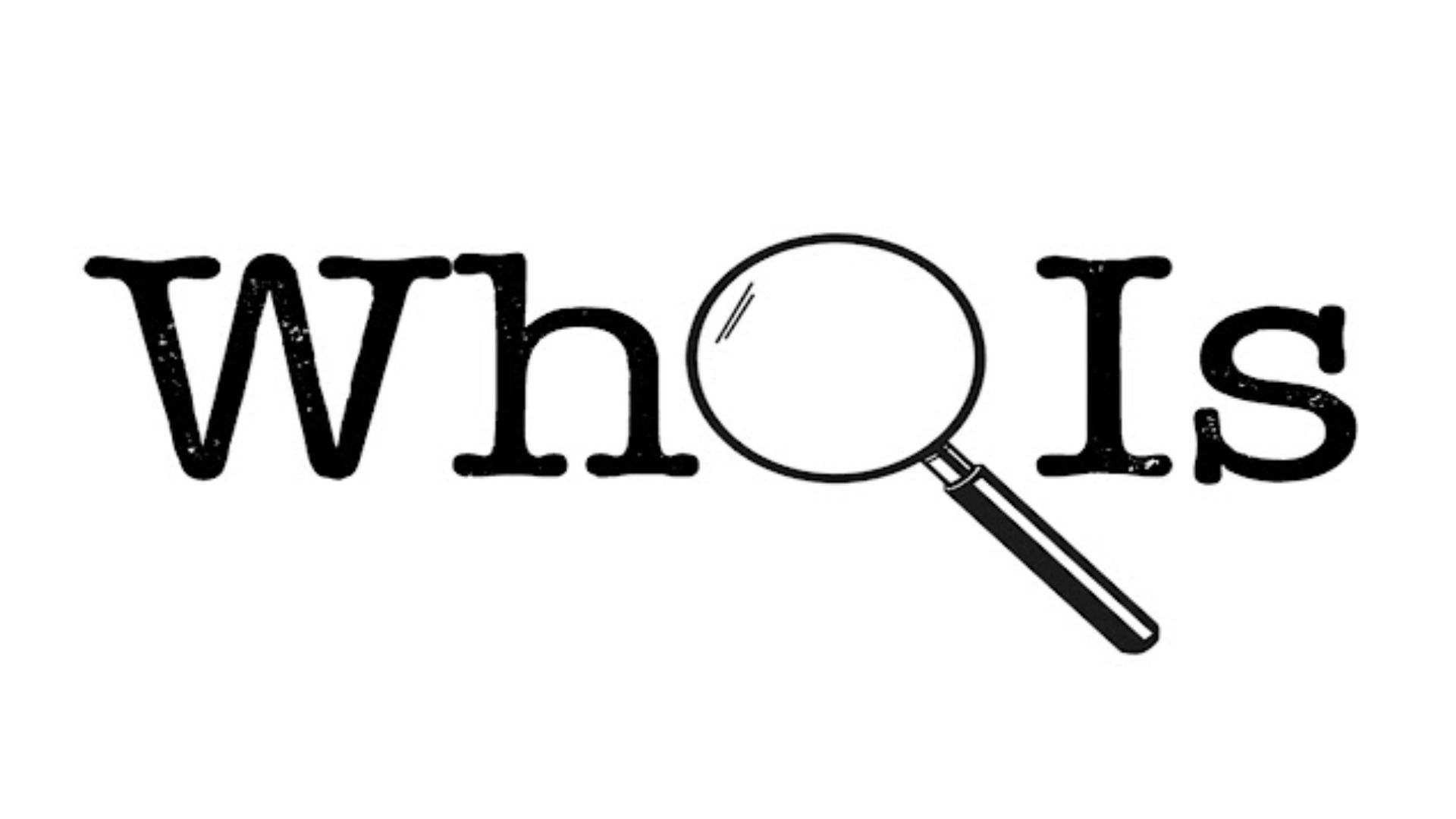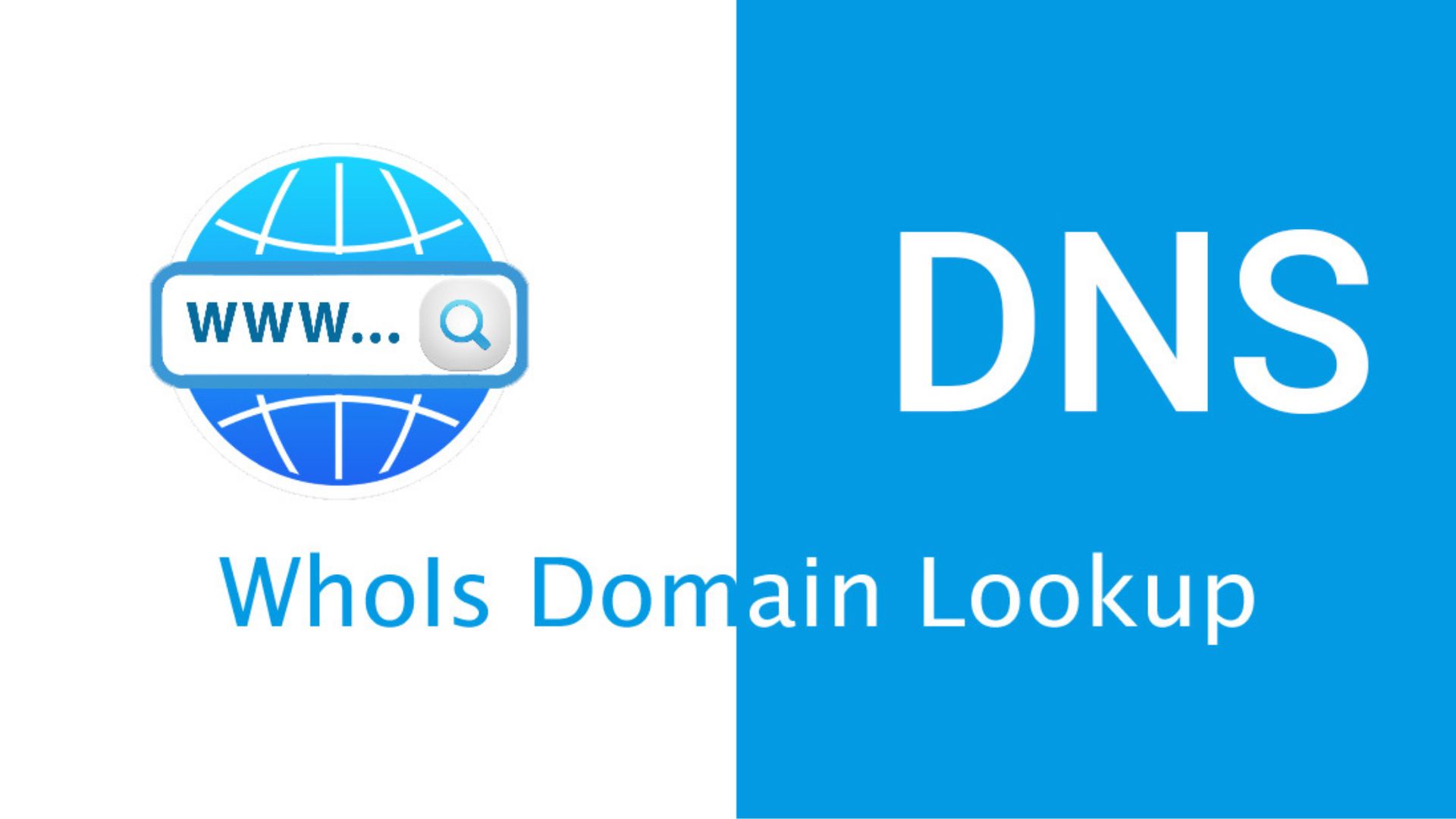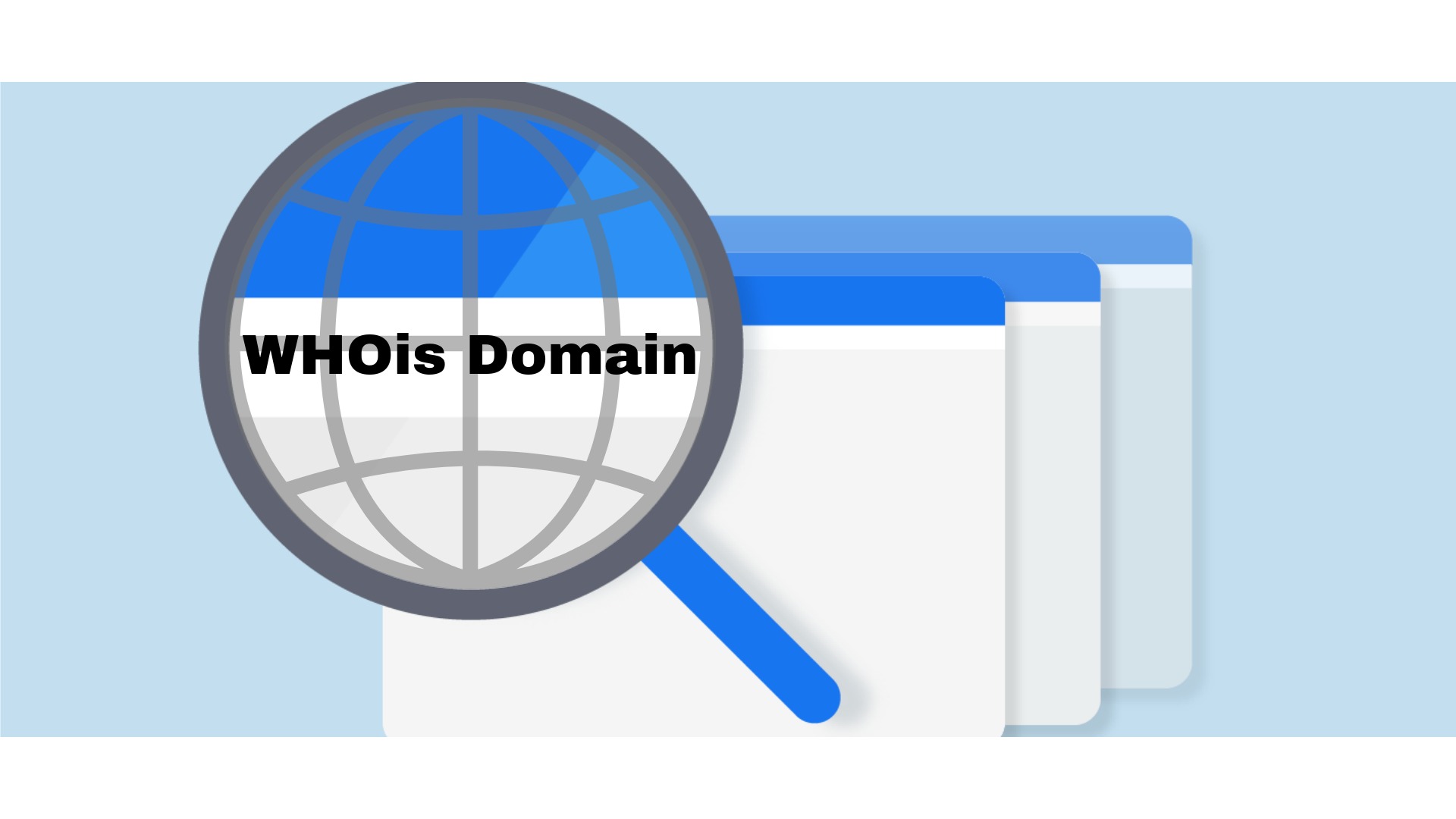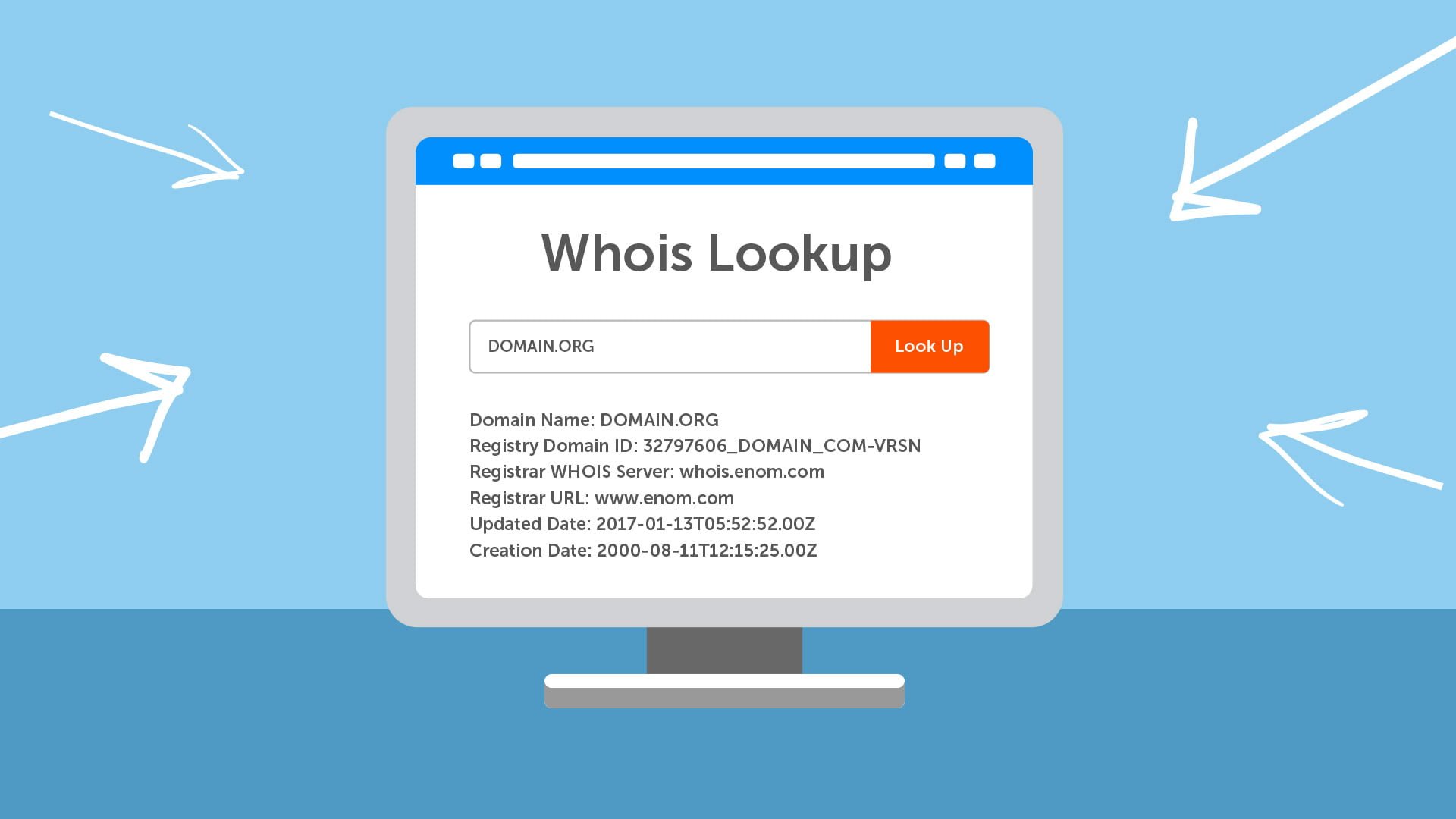Domain Whois - The Key To Internet Visibility
Get comprehensive domain Whois information - Uncover details about domain ownership, registration, and more with our Whois lookup tool.
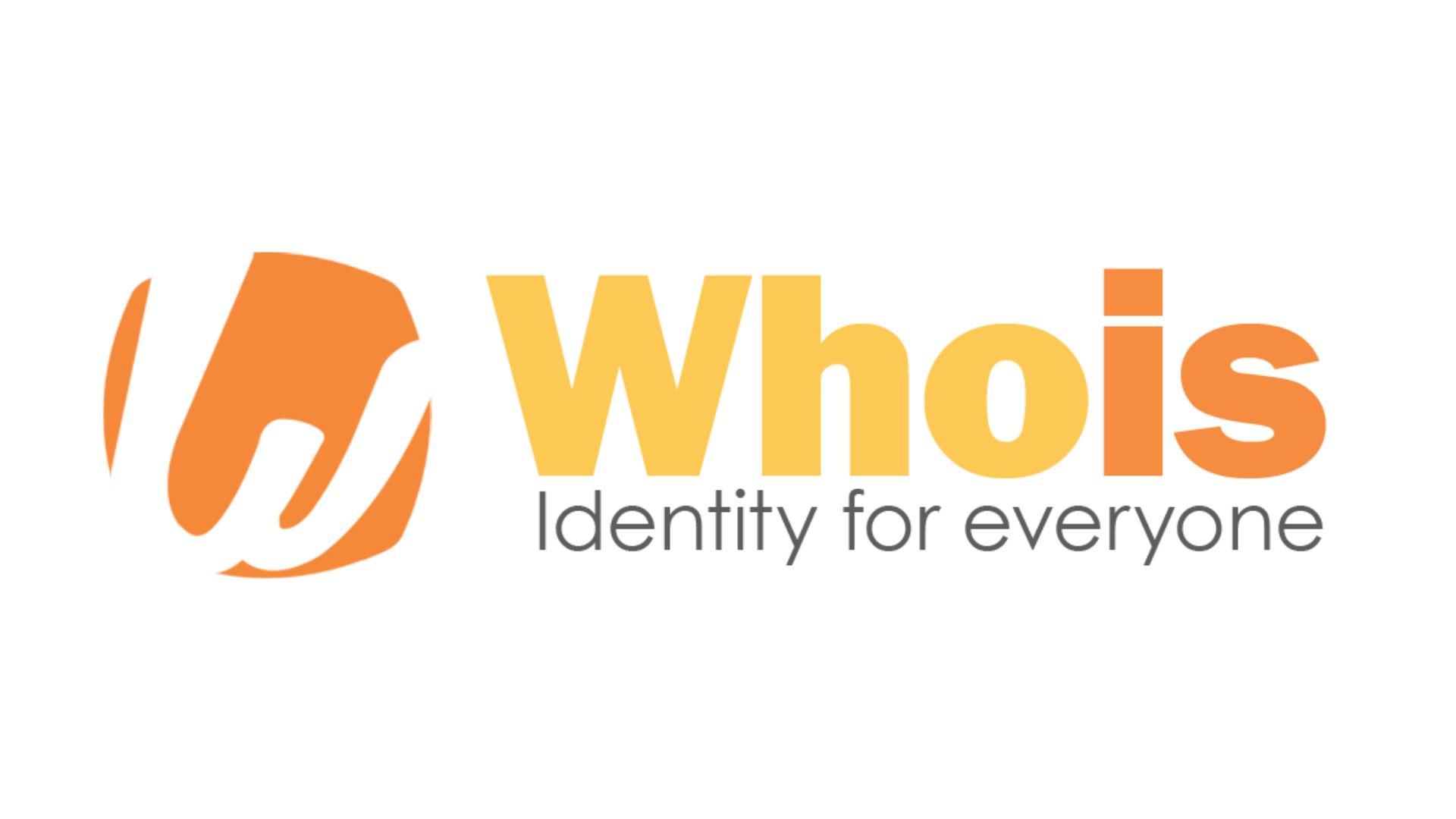
Thomas Mitchell
Dec 11, 2023
The internet has become an integral part of our lives, shaping the way we work, communicate, and access information. Behind every website, there is a complex infrastructure that includes domain names, web hosting, and various technical components. Domain names serve as the digital addresses of websites, making it easy for users to find and access the content they seek.
But have you ever wondered who owns a particular domain, when it was registered, or how to contact the people behind it? This is where the Domain Whoisdatabase comes into play. This comprehensive guide will delve into the world of Domain Whois, unraveling the intricate details of ownership and registration.
What Is Domain Whois?
Relevant details about a domain name, its registrant, and its registrar are kept in a WHOIS record. Although the information contained in WHOIS data may differ, at the very least, this record will include the registrar, name servers, and registration dates. More detailed details can consist of the domain owner, registration location, administrative or technical contact information, and an expiration date.
The Whois Protocol
At its core, Domain Whois is based on the Whois protocol, a widely used tool for querying databases to retrieve information about domainnames, IP addresses, and autonomous systems. This protocol allows users to access a centralized repository of data, which includes details related to domain registrations. When you enter a domain name into a Whois lookup tool, the system queries this database and retrieves the relevant information.
Understanding The Domain Ownership
One of the primary functions of Domain Whois is to provide information about the ownership of a domain name. This includes details about the registrant the person or organization that owns the domain.
The Whois record typically contains the registrant's name, organization (if applicable), and contact information, which may include email addresses, phone numbers, and physical addresses. This ownership information is crucial for verifying the legitimacy of a website or domain.
Administrative And Technical Contacts
In addition to the registrant, the Whois database also includes information about administrative and technical contacts associated with a domain. These contacts play vital roles in managing the domain's technical aspects, such as configuring name servers, DNS settings, and other technical components. Understanding who these contacts are can be essential for addressing technical issues related to a domain.
Dates Of Registration And Expiry
Another critical piece of information available in the Domain Whois database is the registration and expiry dates of a domain. The registration date signifies when the field was first registered, while the expiry date indicates when the domain's registration is set to expire. Knowing these dates can be invaluable for various purposes, such as conducting business negotiations or managing domain renewals.
Name Server Information
Name servers are fundamental components of domain management. They are responsible for translating human-readable domain names into IP addresses that computers can understand. The Whois database contains information about the name servers associated with a domain, which is crucial for troubleshooting technical issues and managing a domain's DNS settings.
The Whois Database - A Treasure Trove Of Information
All of the contact details related to the person, organization, or business that registers a particular domain name are shown in a Whois record.
The name and contact details of the Registrant, the party who owns the domain name, the name and contact details of the Registrar, the company or individual who registered the domain name, the registration dates, the name servers, the most recent update, and the expiration date are typically included in each Whois record.
The administrative and technical contact information (which is frequently, but only sometimes, the registrant) may also be found in whois records.
Whois Thick And Thin Models
For storing Whois resource data, there are two distinct data models:
- Thin Model - Only the registrar, name servers, and registration dates are provided by a thin Whois lookup. To obtain complete information on domain name ownership, a secondary lookup at the registrar on file is required in order to get more information.
- Thick Model- Beyond what is included in a thin Whois record, a thick Whois offers essential extra information. The supplementary information often includes contact (registrant, administrative, and technical) data. Therefore, a lookup will provide all the required details on the domain's owner, registration location, name servers, registration date, and potential expiration date.
Given the abundance of registrars and Whois servers, finding Whois information requires a lot of work. Finding Whois data in a single location is simple using DomainTools. An excellent place to begin is with our Whois Lookup.
The Purpose And Value Of The Data In The Whois System
Supplying network administrators, computer incident response teams, and ISPs with the necessary contacts will help to increase the stability and security of the Internet.
Regulating the state of domain name registration. Assisting law enforcement officers taking part in investigations on a national and international level.
Assisting in the fight against abusive ICT use, such as illegal and other acts driven by racial discrimination, violence, hatred, xenophobia, related intolerance, child abuse, child pornography, pedophilia, and the exploitation and trafficking of humans.
Assisting with inquiries and taking the appropriate actions to complete trademark clearances and to help uncover intellectual property theft, infringement, and abuse in compliance with relevant international treaties and national laws.
Assisting companies, users, and organizations in preventing fraud and preserving the public interest.
By assisting users in determining which organizations or individuals are in charge of certain online services and information, we can maintain users' trust in the Internet as an effective and dependable method of communication—locating spammers or other bad actors.
Why Update Your WHOIS Information?
It's crucial to keep your domain name's contact information up to current in the WHOIS database. You may not be aware of it, but there are several significant reasons to update this data, particularly the domain's registrant's contact email address.
About The WHOIS Database
A WHOIS database containing the pertinent domain information must be made public by your registrar. A WHOIS database is an internet database where users of the WHOIS search tool may look up domain names.
This is accomplished by the organizations accredited by ICANN (Internet Corporation for Assigned Names and Numbers), such as our registrar LaunchPad, eNom, or others, reporting the WHOIS data provided at the time of domain purchase to the official WHOIS database.
Requirement For Accurate Contact Information
According to ICANN rules, registrars must keep up-to-date contact information for the domain name owner in the WHOIS database. eNom or LaunchPad will send an email seeking confirmation when registering a new name or making changes to the registrant, admin, technical, or billing contact information shown in the WHOIS. In the event that there is no answer within 15 days, the domain name will be suspended.
Additionally, to alert the domain name owner of domain expiration, attempted transfers, and other domain administration information, eNom or LaunchPad may contact the email address on file. The domain name may be deleted by eNom or LaunchPad if no answer is received, allowing another person to register the same domain name.
Inaccurate Information Can Lead To Domain Expiration And Redemption
It can be disruptive when a domain expires. The expired domain name is momentarily deactivated by the registrar during the redemption time, which ICANN stipulates. But in addition to the renewal fee (some registrars charge as much as $250), reactivating the domain name during this period costs $75 to USD 90.
Challenges In Understanding Domain Whois
The following are the challenges faced by Domain Whois.
Time To Update
When you provide us with an update to your contact information, we immediately send that information up the chain until it reaches the government. Although this could be more active in and of itself, there are several locations where your data may be cached. As a result, it may take longer to resolve difficulties that are already present, such as trying to obtain SSL certificates or transfer domains before a deadline quickly.
Transfer Locking
After altering the contact information, registrars must lock the name from transfer for 60 days as of December 1, 2016. This is intended to act as an additional safety measure against domain theft.
Now, if someone gains access to your account, they cannot quickly empty out your domains and force you to engage in a legal struggle to recover them.
However, occasionally, folks get locked in for another 60 days because they only know their contact information is updated once it's time to move.
Privacy
Of course, many people need help with making all of this information publicly available. Who wants their address, contact information, and email to be made public? After purchasing new domains, many consumers describe receiving a deluge of spam, occasionally even calls or unsolicited letters.
It is awful that this has happened. However, you must do more than just insert false information in the WHOIS information as we have described; doing so might result in significant issues down the road. For domains, we offer WHOIS privacy protection due to this.
Why Should You Use Privacy Controls On Domains?
Following are the reasons for using privacy control on Domain Whois.
Reducing Spam
You expose yourself to a lot of spam if your name and contact details are displayed in a WHOIS search. Many marketers will utilize this data to create lists that they can sell to practically any company wanting to send out bulk emails with content.
You will be subjected to unwanted communications as a result of marketers being able to create specialist mailing lists to sell for their advantage.
Emails from individuals wanting to get your company might also be considered spam. Your mailbox might rapidly start to overflow with emails from website designers, other website owners, and other "deals."
You could receive a barrage of offers of this nature despite the fact that some of them are legitimate businesses simply searching for leads of their own. If your information is made public, registration fraud, bogus warnings, and other issues might arise.
Reducing Identity Theft
Not all identity thieves are interested in obtaining your credit card details. Many will attempt to exploit your information to take over your website, open accounts in your name, or cause other types of online havoc.
Your chance of losing your identity to individuals with harmful intentions is decreased by WHOIS privacy.
Personal Views Vs. Professional Information
A lot of individuals utilize privacy settings to keep their personal and business lives apart.
Let's use an example - Suppose you stated something very contentious on social media. Your website might be connected to that remark by your name if WHOIS privacy is not used to conceal your identity.
When someone disagrees with you on a blog post, some individuals may even go out of their way to find out as much information as possible about you. Keeping your personal and professional lives distinct by hiding your genuine identity is beneficial.
Control Of Contact Information
From a business standpoint, utilizing a private domain encourages visitors to use certain contact information again.
These people must use the information you offer on the website to inquire about professional services rather than utilizing your phone, email, or address. This allows you greater control over the precise contact details for the company website or professional blog.
The last thing you want is for someone to contact your number at two in the morning while you're trying to sleep and try to order anything your company offers.
Hiding Your Physical Location
Your exact location can be known to some. You could launch a blog that gets a lot of attention or run an online store from your house. Really, you don't want folks to show up at your door.
Whatever the reason, adding privacy to your domain hides your physical address from the general public.
Hiding Website Ownership Or Designing Party
Only some registered users have a direct connection to the website above. Designers and website hosts frequently register domains on behalf of their customers.
Some customers prefer not to have their personal information connected to the website for whatever reason. Some people will choose to employ WHOIS privacy settings rather than displaying the designer's information, which may have nothing to do with the subject of the website itself.
The Future Of Domain Whois
The Domain Whois system, which has been an essential tool for identifying domain ownership and registration details, is facing a future filled with challenges and transformations.
Evolving Technology And Automation
The future of Domain Whois is intricately tied to advancements in technology. Automation and artificial intelligence are poised to play a significant role in how Whois data is collected, managed, and made available. These technologies have the potential to streamline the process of updating and verifying domain ownership information, making it more accurate and up-to-date.
Machine learning algorithms can be employed to cross-verify data and ensure that Whois records remain accurate, reducing the prevalence of incomplete or outdated information. Moreover, automation can aid in detecting potential cybersecurity threats and abusive domains more effectively.
Blockchain And Decentralized Systems
Blockchain technology, known for its transparency and security, is gaining prominence in the domain management landscape. It offers a decentralized and tamper-resistant method for recording domain ownership and registration information. Domain data stored on a blockchain can be more resistant to manipulation, enhancing trust in the accuracy of Whois information.
The use of blockchain for Whois data can also address privacy concerns by allowing domain owners to control access to their information. They can grant or revoke permission for specific parties to view their data, ensuring that personal details are protected.
Privacy Concerns And Legal Regulations
The tension between privacy rights and the need for transparency will continue to shape the future of Domain Whois. Privacy regulations like the General Data Protection Regulation (GDPR) have already led to the redaction of personal data in Whois records, making it more challenging to access specific details. The debate surrounding the accessibility of Whois information will persist, with governments and advocacy groups advocating for more robust data protection.
In response to these privacy concerns, Domain Privacy Protection services will likely become more prevalent. These services replace the registrant's personal information with proxy information, shielding the actual owner's details from public view. The future of Whois may see an increased reliance on such privacy protection measures.
International Cooperation And Standardization
International cooperation and standardization efforts will play a crucial role in shaping the future of Domain Whois. Organizations like the Internet Corporation for Assigned Names and Numbers (ICANN) are working to define consistent policies and standards for Whois data. These efforts aim to strike a balance between the need for transparency and privacy rights while ensuring global consistency.
The collaboration between governments, internet governance bodies, and privacy advocates will continue to shape Whois data policies. The aim is to establish a framework that respects privacy while allowing legitimate access to Whois data for cybersecurity and accountability purposes.
Domain Whois - FAQs
How Can Blockchain Technology Enhance The Future Of Domain Whois?
Blockchain technology can provide a tamper-resistant and decentralized system for recording domain ownership, increasing data accuracy and security.
What Role Do Decentralized Identifiers (DIDs) Play In The Context Of Domain Whois?
DIDs enable self-sovereign identity, offering secure and privacy-enhanced management of domain ownership and registration information.
What Privacy Protection Service Can Shield Personal Information In Whois Records?
Domain Privacy Protection services replace personal data with proxy information to protect the actual owner's details.
How Do Multi-factor Authentication And Cryptographic Signatures Impact Whois Data?
Enhanced security measures like multi-factor authentication and cryptographic signatures help protect against unauthorized access or changes to Whois records.
Why Is International Cooperation And Standardization Crucial In Shaping The Future Of Domain Whois?
International collaboration and standardization efforts aim to establish consistent policies that balance privacy and transparency while ensuring global consistency in Whois data management.
Conclusion
The future of Domain Whois is marked by a dynamic interplay of technological advancements, privacy regulations, and the ongoing quest to strike the right balance between transparency and privacy.
Evolving technologies like blockchain, Decentralized Identifiers (DIDs), and enhanced security measures are poised to improve the accuracy and security of Domain Whois data. Privacy protection services, international cooperation, and standardization efforts will continue to influence how Domain Whois is managed.
The transformation of Domain Whois reflects the evolving landscape of privacy and data protection in the digital age, and the challenge is to ensure that Domain Whois remains a valuable and reliable resource in the domain management ecosystem.
